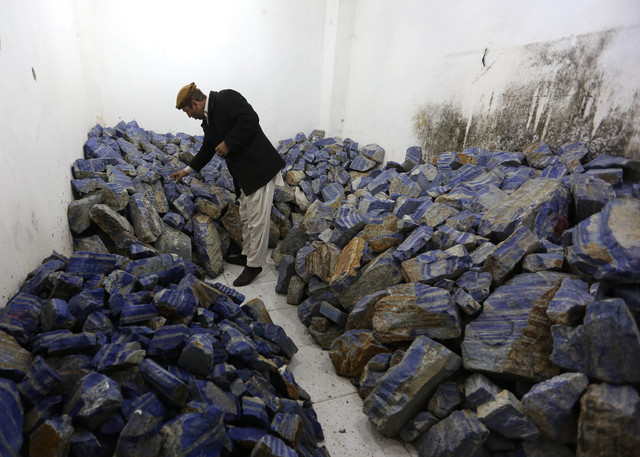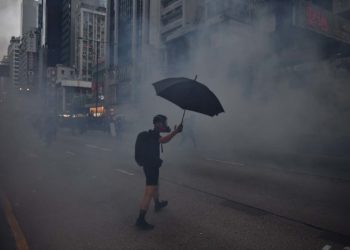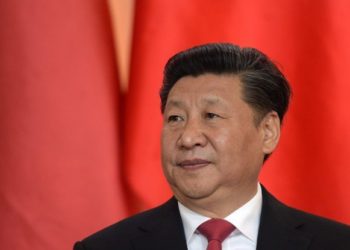Soviet mining experts in the 1980s discovered that Afghanistan was rich in natural resources such as iron, copper, gold, cobalt, rare earth metals, and lithium, but the data lay hidden until the fall of the Taliban.
In 2010, the Pentagon estimated Afghanistan’s mineral wealth at some $1 trillion, although critics argued the deposits are cost-prohibitive to extract, not to mention the perils of mining in a war zone evidenced by China’s inability to extract copper from Mes Aynak for the past decade.
Yet, last week, the trillion dollar question reared its head again with the New York Times reporting that White House officials are looking at Afghanistan’s deposits as a compelling reason to maintain a presence in the country, just as President Donald J. Trump appears reluctant to sign off on the Defense Department’s 4,000-troop mini-surge strategy. But there might be more strategic economic reasons to exploit Afghanistan’s natural resources beyond corporate profits and surge plans — such as countering China’s dominance of rare earth materials.
American Elements Founder and CEO Michael Silver, who is heading the White House initiative, told The Globe Post that Beijing’s brilliant long-term strategy to monopolize rare earth materials has put the U.S. at a competitive disadvantage, but Afghanistan presents an opportunity for a paradigm shift.
“We live in a different world than the past, where commodity prices mattered because a monopoly allowed sometimes a single nation or a group of nations to charge an extremely high price for that material, and people are still thinking along those lines,” Mr. Silver said. “That’s not the world we live in today, particularly with rare-earth metals, which is kind of what got me involved in the Afghanistan situation.”
China decided to hold onto rare earth minerals, he explained, to strategically force major high-tech manufacturing companies like General Electric and Applied Materials to move operations inside China to get guaranteed access to raw materials at a reasonable price.
The U.S., he argued, needs an overall strategy to create “a fertile ground for manufacturing to blossom,” just as China was able to do. If Washington is serious about bringing back high-tech manufacturing, Mr. Silver added, it must show a commitment to having raw materials “in hand and always available.”
The goal, he said, is to build “industrial independent environments so America is a free standing competitive manufacturing ecosystem, you might say, like China.”
Mr. Silver believes if China has almost all the rare earth minerals on the planet tied up, the U.S. may only need the remaining 3%, for example, because that could mean decades worth of significant annual usage, although no one to his knowledge has done the full analysis on the projections yet.
“Don’t tell me what percent we have. How many years do we have?” Mr. Silver said.
If the U.S. starts controlling deposits like Afghanistan and can demonstrate having access to anywhere from 35 to 100 years’ worth of product, companies would be willing to set up in the U.S., he claimed.
Mr. Silver did acknowledge, however, that there were plenty of obstacles to overcome.
“There are all types of things that make a deposit costly to work with,” he said. “This one [in Afghanistan] is primarily logistics.”
China, he noted, is building a rail line through the northeast while India is building west through Iran to a deepwater port on the Persian Gulf to ship iron ore. While he could not get into the details, Mr. Silver confirmed that studies are underway on how to create a southern route.
“America is not going to go east through China and we certainly aren’t going to go through Iran,” he said. “That leaves us with one route – straight down through Pakistan in the Pashtun area. So not a particularly safe place.”
Mr. Silver said that, overall, the Afghan minerals initiative is “actively moving on” and that the White House will announce the next phase of the project.
Professor Thomas Barfield, Chair of Boston University’s Anthropology Department, told The Globe Post that U.S. corporations are probably not interested in Afghanistan’s mineral deposits based on the risk/reward calculus.
“There may well be more profit in the downstream value added elements than in direct extraction,” Mr. Barfield said. “State-backed investments by China and India that have fewer resources have been more common because it fits into larger geostrategic plans. Countries have those, corporations do not.”
Mr. Barfield, however, echoed Mr. Silver’s concerns, noting that rare earth minerals “were boring” until Beijing restricted exports and then people were suddenly looking for alternatives to break the Chinese monopoly.
Ahmad Shah Katawazai, a Security Expert with a Master’s Degree in Global Security Studies from Johns Hopkins University, wrote recently in a piece for The Diplomat that the U.S. and its international partners should do a comprehensive risk assessment before embarking on such an endeavor.
“While strategic minerals may give Afghanistan a special advantage in attracting international investment, those mineral resources could turn into a resource curse as Afghanistan struggles with the hostility of its neighbors, internal ethnic fractions, rising insecurity, active insurgency, corruption, warlordism, absence of proper and effective institutions, and more importantly the absence of necessary precautionary measures,” Mr. Katawazai warned.




















